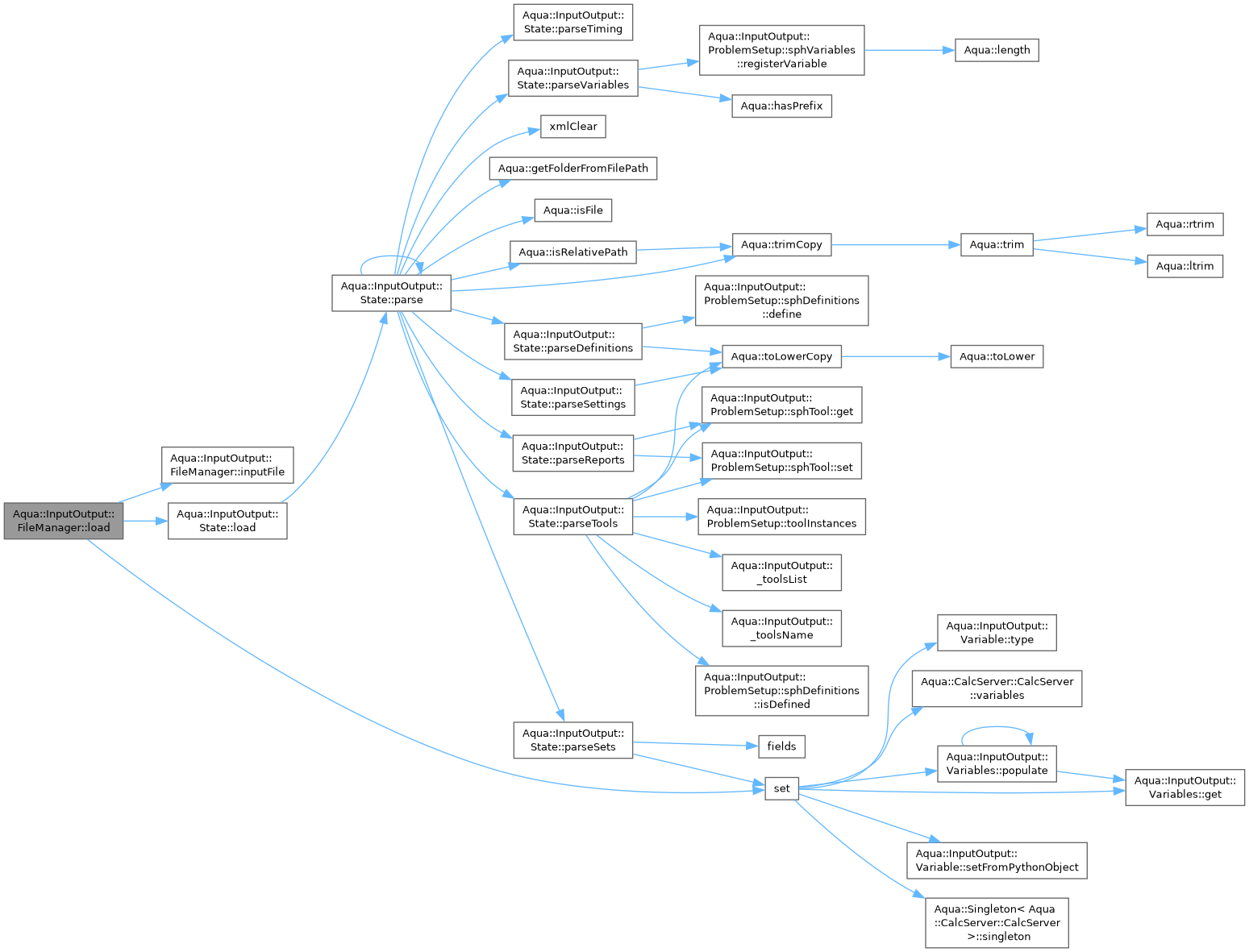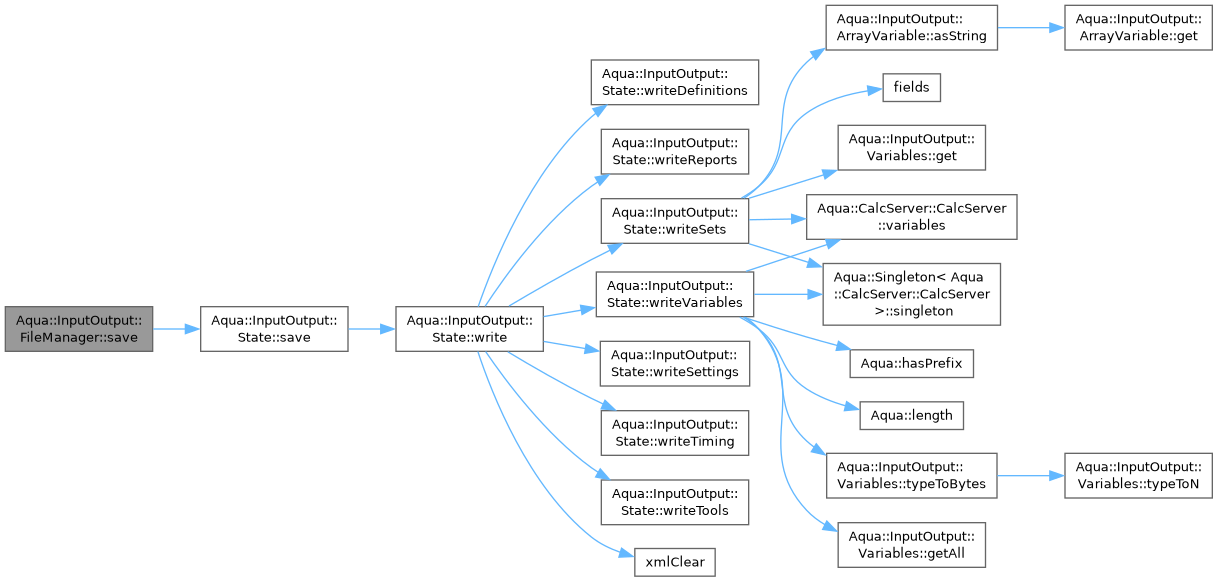Input/Output files manager. This class acts as a base class, controlling the subclasses which will load/save the files. More...
#include <FileManager.h>
Public Member Functions | |
| FileManager () | |
| Constructor. | |
| ~FileManager () | |
| Destructor. | |
| void | inputFile (std::string path) |
| Set the main XML input file path. | |
| std::string | inputFile () |
| Get the main XML input file path. | |
| ProblemSetup & | problemSetup () |
| Get the simulation setup, extracted from the XML definition files. | |
| CalcServer::CalcServer * | load () |
| Load the input files, generating the calculation server. | |
| void | save (float t) |
| Save the output data files. | |
| void | waitForSavers () |
| Wait for the parallel saving threads. | |
Detailed Description
Input/Output files manager. This class acts as a base class, controlling the subclasses which will load/save the files.
- Note
- The Log file is controlled by Aqua::InputOutput::Logger
Constructor & Destructor Documentation
◆ FileManager()
| Aqua::InputOutput::FileManager::FileManager | ( | ) |
Constructor.
◆ ~FileManager()
| Aqua::InputOutput::FileManager::~FileManager | ( | ) |
Destructor.
Member Function Documentation
◆ inputFile() [1/2]
|
inline |
Get the main XML input file path.
AQUAgpusph simulations are built on top of a XML definition file. Such file can later include another XML definition files, such that modules can be easily created.
- Returns
- XML input file path.
◆ inputFile() [2/2]
| void Aqua::InputOutput::FileManager::inputFile | ( | std::string | path | ) |
Set the main XML input file path.
AQUAgpusph simulations are built on top of a XML definition file. Such file can later include another XML definition files, such that modules can be easily created.
- Parameters
-
path XML input file path.
◆ load()
| CalcServer::CalcServer * Aqua::InputOutput::FileManager::load | ( | ) |
Load the input files, generating the calculation server.
Depends on:
- Aqua::InputOutput::State to load the XML definition files, storing the data in Aqua::InputOutput::ProblemSetup.
- Aqua::InputOutput::Particles to load the particles fields data, storing it in Aqua::CalcServer::CalcServer.
- Returns
- The built Calculation server, NULL if errors happened.

◆ problemSetup()
|
inline |
Get the simulation setup, extracted from the XML definition files.
AQUAgpusph simulations are built on top of a XML definition file. Such file can later include another XML definition files, such that modules can be easily created. The simulation data read from such XML files is stored in this Aqua::InputOutput::ProblemSetup structure
- Returns
- Simualtion data
- Warning
- The returned Aqua::InputOutput::ProblemSetup static object is in the same scope than this class.
◆ save()
| void Aqua::InputOutput::FileManager::save | ( | float | t | ) |
Save the output data files.
AQUAgpusph is saving both, the XML simulation definition file, and the particles field values in the required formats. This information can be indistinctly used for postprocessing purposes, or as initial condition to resume the simulation.
- Parameters
-
t Simulation time
- Warning
- If Python scripts are considered at the simulation, the user is responsible to save the state to can eventually resume the simulation

◆ waitForSavers()
| void Aqua::InputOutput::FileManager::waitForSavers | ( | ) |
Wait for the parallel saving threads.
Some savers may optionally launch parallel threads to save the data, in an asynchronous way, in order to improve the performance. In such a case, AQUAgpusph shall wait them to finish before proceeding to destroy the data
The documentation for this class was generated from the following files:
- /home/pepe/SPH/Code/aquagpusph/include/FileManager.h
- /home/pepe/SPH/Code/aquagpusph/src/FileManager.cpp